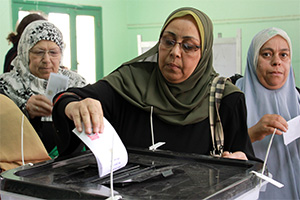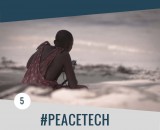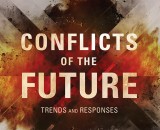A Revolution Asks Questions
I forget my anger and frustration at the slow process for change when I hear that young women continue to work to change the rules of the game in political parties. They are not just filling out membership forms; they argue that they must be a part of decision making and agenda setting, making it clear that they are not planning to stop pushing for reforms. Another acquaintance, Naiera, struggles inside her political party to bring youth vision to the agenda. “It is difficult to bring the youth vision to established parties who have money and power,” she says. “But we know that youth can make a difference and contribute to change and that’s what motivates to us to be organized and unified.”
I forget being tired when I see that men are joining the struggle, not just fighting for women’s rights, but for gender equality. We are together pushing for change; together we paint our dreams on the walls.

Credit: Flickr – Nehal El Sherif
My anger returns, however, when I remember how much we risk as women in our public and private struggles. In November 2011, when clashes erupted between protestors who wanted to protect the Tahrir Square sit-in and security forces, I was delivering medical supplies to a field hospital with a friend. She looked at me and asked, “How much tear gas have we inhaled in the last few days?” I was not sure how to reply. She smiled then and said, “I want to be a mother one day and am struggling to give our children an Egypt free of oppression, but I hope my body gets rid of the poisons of the tear gas so it will not affect the health of my babies.” She was dreaming in the middle of the gas clouds, reminding me that in mid of our struggles we should not forget our personal dreams.
I hope my mixed up feelings and emotions will stay with me forever. These feelings and the questions our revolution poses are needed to create alternatives, to pave new roads, so we are not trapped between two options only: a militarized regime or another that is based on religious fundamentalist thinking. We pose questions such as “Where to go next?” and “How we should organize ourselves?” to try to understand our present and our future. It is difficult but we need to keep those questions alive. We believe that another world is possible, and without any ready answers, we still work for it.

